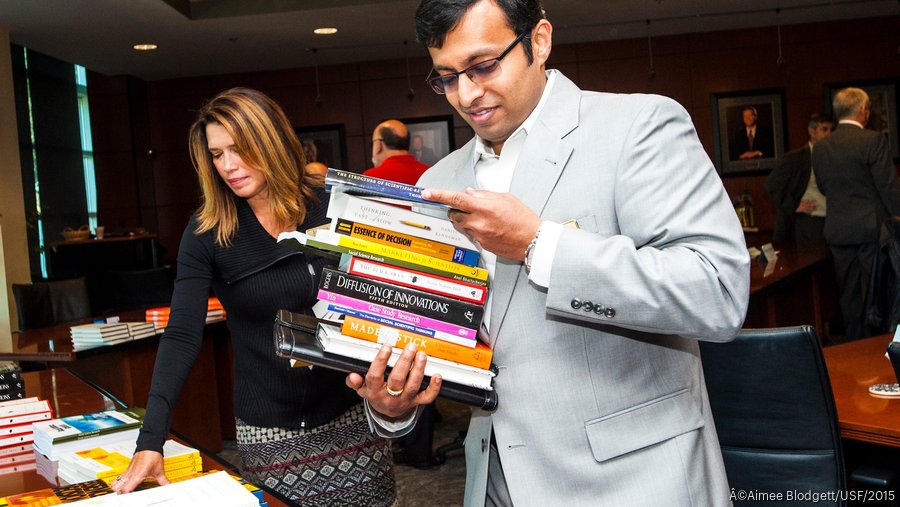An MBA, plus a lengthy career in the military, teaching for the Air Force and working with government contracts, wasn’t enough for Brig. Gen. Tanker Snyder.
Snyder, now president of AeroSage and CareSage, a couple of Tampa government services providers, has gone back to school at University of South Florida to earn a doctorate of business administration.
He’s one of the 25 executives enrolled in the first class of the school’s three-year program designed to bring executives on campus one weekend a month for personal development and a business edge over the ever common MBA.
“A research student is a slave to a professor,” he said. “I’m learning about my business from other executives.”
Unlike the standard doctorate of philosophy in business, this program is one of 11 in the country to target executives still working full time, business professor Grandon Gill said.
The doctorate brings high-level employers on campus to see resources available from the university, part of a strategy to find more opportunities to work with Tampa Bay’s business community.
USF’s program costs under $100,000 and requires students to have 12 years of work experience, five of which in a chief executive position.
The median age for students is 52, with a range from late 30s to early 70s, Gill said.
The program brings 25 executives from different industries together to help each other with problems they experience at work, sends the students to different conferences, and shows how research tools Ph.D. candidates use can apply to business practices.
The program is the opposite of the Ph.D. program, which prepares professional academics for publishing research.
“The last thing these DBAs want to be is like me,” said Gill, who earned a DBA from Harvard, has published five pieces of research since 2010 and joined USF in 2001.
The program will accept applications for the second class until Nov. 1.
For Gen. Snyder, G.I. Bill funds he hadn’t yet used have helped him learn to automate parts of his government contracting business. He already has a master’s and the actual value of a degree unknown to most people remains questionable.
But the networking opportunities and the chance to shape a new program at USF have made his investment worthwhile, he said.
“It’s just been dynamite,” Snyder, 59, said. “I’m just so impressed.”
